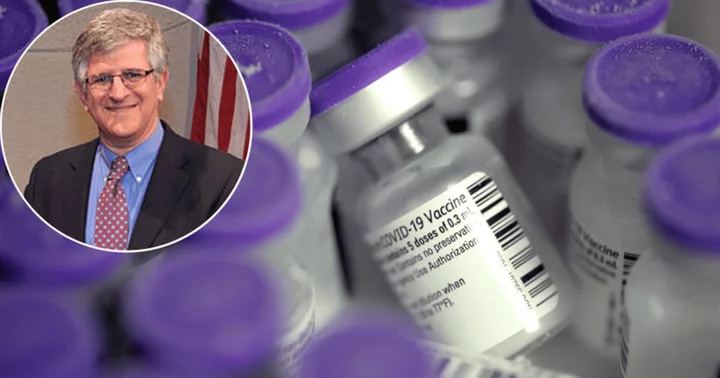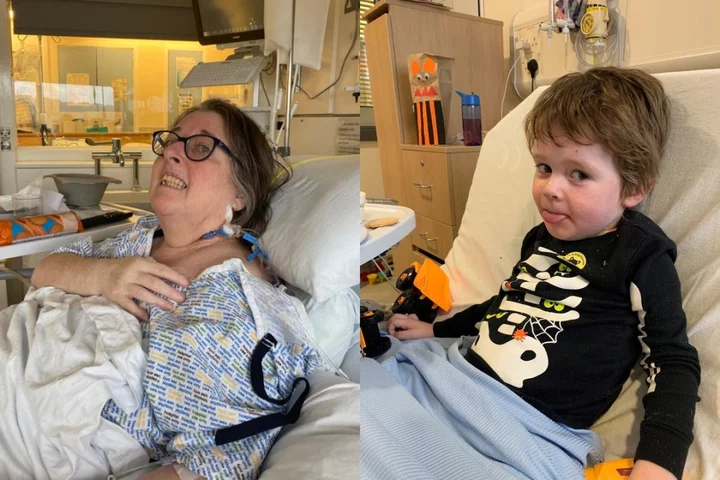PHILADELPHIA, PENNSYLVANIA: Amid ongoing discussions surrounding Covid-19 vaccine boosters, Dr Paul Offit, a prominent vaccine adviser to the Food and Drug Administration (FDA), has made a statement that could shape the future of booster rollout in the United States. Dr Offit is a pediatrician with a specialization in virology, immunology, vaccines and infectious diseases.
Contrary to the anticipation of a nationwide booster campaign targeting all age groups, Dr Offit has suggested a more targeted approach, declaring that most healthy and young Americans don't need another Covid booster shot, instead focusing on those who are "most at risk of severe disease."
Dr Paul Offit's targeted approach to boosters focuses on high-risk groups
Dr Offit's influential position as one of the 14 scientists on the FDA's Vaccines and Related Biological Products Advisory Committee (VRBPAC) underscores the importance of his recommendations in shaping vaccination policy.
His argument is grounded in the belief that middle-aged and younger individuals who are in good health already possess robust immunity, thanks to previous vaccinations and natural infections, per Daily Mail.
He said, "Boosting otherwise healthy young people is a low-risk, low-reward strategy. Again, with an understanding that the goal of the vaccine is to prevent severe disease."
Dr Offit, who has been instrumental in advising the FDA on various vaccines for infectious diseases, has emphasized that the primary goal of the Covid vaccine is to prevent severe illness. In this context, he recommends "targeting these booster doses to those who are most at risk of severe disease (i.e. hospitalization)."
He explained who is a part of this group, saying, "Specifically, those over 75 years of age, those who have health problems that put them at highest risk of severe disease (such as obesity, chronic lung disease, chronic heart disease and diabetes, among others) [and] those who are immune-compromised and those who are pregnant."
While this perspective runs counter to the Biden Administration's expected approval of a nationwide rollout of updated Covid boosters from Pfizer and Moderna, it aligns more closely with the approach taken by countries like the United Kingdom, which restricts booster shots to adults over 65.
Navigating booster costs and CDC decision-making
One significant aspect to consider is the cost of these updated booster vaccines. The federal government will not cover the expenses for these booster shots this fall. However, a majority of Americans will still have access to the vaccines through their health insurance.
For those without insurance, the federal government has established the $1.1 billion Bridge Access assistance program to ensure they can receive Covid vaccines and treatments for free through 2024.
Notably, Dr Offit's committee previously voted against offering Pfizer vaccine booster shots to all Americans in 2021, advocating for their provision solely to those over 65.
The ultimate decision on who should receive the Covid booster will come from the Centers for Disease Control and Prevention's (CDC) Advisory Committee on Immunization Practices (ACIP), with a meeting scheduled for September 12.
The CDC director, Dr Mandy Cohen, will then finalize the recommendation, potentially influencing the rollout of updated booster vaccines.
These discussions occur in the context of new variants such as XBB.1.5 or "Kraken," and BA.2.86 or "Pirola," which are causing Covid rates to surge worldwide. Early tests suggest that this year's updated booster vaccine could effectively combat these variants, offering hope in the ongoing battle against the virus.
Despite the Biden Administration's declaration that the pandemic was over in May, the government's recent commitment to invest $1.4 billion in Covid drugs and vaccinations underscores the ongoing challenges posed by the virus. The funds will be channeled into developing new tools and technologies to safeguard against Covid-19 for years to come, reflecting the need for sustained efforts in managing the pandemic.
While Covid hospitalizations in the United States have seen an uptick in recent weeks, the numbers remain well below the peak experienced earlier in the year. This suggests that, while the pandemic is not over, the current situation is more manageable, prompting the need for careful consideration of booster distribution strategies.









